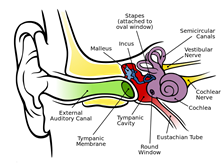What is Tinnitus
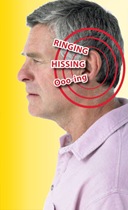 Tinnitus is a frustrating, chronic disorder that can – at times – make a person feel like they’re going mad. It can be related to a diagnosed medical condition or be completely idiopathic; and when the cause is unknown finding solutions is an exhausting process.
Tinnitus is a frustrating, chronic disorder that can – at times – make a person feel like they’re going mad. It can be related to a diagnosed medical condition or be completely idiopathic; and when the cause is unknown finding solutions is an exhausting process.
Nutrition and Tinnitus
Nutrition and dietary deficiencies can play a very real role in heath and the progression of disease. The herbal and vitamin market abounds with claims, both supported and anecdotal, for the benefits of supplementation. Vitamin B-12 has been getting a lot of press lately regarding tinnitus and it’s hard to make sense of all the new information.
What is a vitamin anyway?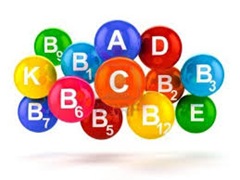
It’s actually hard to define a “vitamin” as they’re classified by what they do in the body vs. their composition. They function as enzymatic co-factors; meaning they’re needed by an enzyme to do its job. Enzymes and their co-factors are not destroyed when they do their work, nor are they added to the final product, so they can be reused until they break down. Many vitamins incorporate a metal atom (cobalt in the case of B-12, A.K.A “cobalamin”). Some are water soluble while others are fat soluble. Some can be manufactured in the body, while others come only from food.
What is vitamin deficiency?
Vitamin deficiency is when the levels of available vitamin, as measured in the blood, are below a standard set by the medical and biochemistry community. Generally, these standards are based on the levels below which people begin to get sick. The recommended blood concentration of B-12 is between 200-900 pg/ml (picograms/milliliter). Being below this level for long-term can lead to symptoms including megaloblastic anemia and neurological symptoms like numbness in the hands and feet, gait disturbances (problems walking) and even changes to taste and vision.
One point of debate is whether the current markers for high and low are really sufficient for preventing disease. The aforementioned problems certainly arise when levels of B-12 are significantly low, for a long time. But some argue that more mild insufficiencies may contribute subtly to degenerative illnesses. Definitive answers on this are yet to come.
Why am I low in B-12?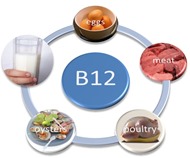
Vitamin deficiencies can arise from diet, metabolic problems or a failure to absorb a nutrient properly. B-12 can’t be manufactured by either plants or animals, and is actually formed by bacteria. It is stored in the foods we eat, and its absorption is a complex process.
The majority of dietary Cobalamin is found in meat, egg and fish products – and a diet low in these can make it difficult to keep B-12 levels normal. Vegans must pay special attention to ensure their diets have a full complement of nutrients including B-12. Cobalamin must be bound to protein during digestion, absorption and transportation through the blood. In the stomach, dietary B-12 is broken away from its ingested protein and re-bound to “R-binders” (A.K.A haptocorrins, A.K.A transcobalamin I).
These proteins carry it through to the small intestine where the haptocorrins are degraded and the B-12 binds to “intrinsic factor”. Pancreatic insufficiency or a high (basic) intestinal pH can lead to problems with this step. In the Ilium, intrinsic factor receptors bind the protein/B-12 complex and bring it into the enterocyte (intestinal absorptive cell) where B-12 then binds to transcobalamin II for transport through the blood. A transcobalamin II receptor is used by peripheral cells to take it from the bloodstream, with about 50% of B-12 ending up in the liver for storage.
A failure of any of these proteins or receptor complexes can result in a failure to absorb or transport B-12. It’s common for the production of intrinsic factor to diminish with age, which is why we hear so much about B-12 shots for the elderly.
Does B-12 Deficiency affect my tinnitus?
Whether a B-12 deficiency affects tinnitus is a question currently being studied. It is known that deficiencies in B-12 can cause neurological symptoms due to hypomethylation within the nervous system (resulting from an inability to recycle homocysteine to methionine and ultimately to S-adenosylmethionine). Neurological symptoms usually arise only after long-term, significant B-12 deficiency.
To date, there has been one formalized study showing that individuals already deficient in B-12 are more likely to suffer noise induced hearing loss with tinnitus after exposure to loud noise. While one study does not a scientific truth make, this is a good place to start the investigation. It should also be noted that the study did not address whether supplementing with B-12 is protective or restorative, or if deficient B-12 simply left the hearing more vulnerable. These are things that need to be researched.
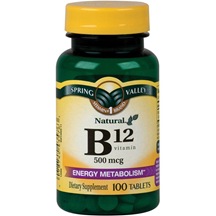 What can I do about low B-12?
What can I do about low B-12?
What to do about a B-12 deficiency depends on its cause. If your diet lacks cobalamin, improve the amount of B-12 rich foods you eat. If for some reason that’s not an option, vitamin pills are an effective alternative.
If the deficiency is an absorptive problem (which can be confirmed by your doctor), B-12 shots are a well recognized therapy. If the failure is with B-12 usage from the blood stream, there are lifestyle changes that can maximize the value of the vitamin that is being absorbed such as maintaining adequate cysteine in the diet.
It’s important to note that the liver stores enough B-12 to supply all the body’s need for 2 to 3 years. This is why symptoms of B-12 deficiency are slow to develop, and a single low blood test is not necessarily time to panic. While the journals report no evidence that taking excessive B-12 is hazardous, a person is concerned about B-12 should work with their doctor and a nutritional specialist to determine the concern, cause and the need to take action.
If you suffer from tinnitus, call our office today to schedule a consultation with the best tinnitus treatment center in NYC.

 Do you feel your family and friends don’t understand?
Do you feel your family and friends don’t understand?
 This blog’s mission is to provide you with hope. Maybe you have been told there is nothing you can do or that you just have to get used to it.
This blog’s mission is to provide you with hope. Maybe you have been told there is nothing you can do or that you just have to get used to it.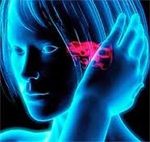 Peter N. reported that he had low level tinnitus for several years which did not seem to bother him. When he mentioned that he had ringing in the ear to a friend the response was: “You must have tinnitus.” “What’s that?” Peter inquired. “Look it up on the internet,” his well-intentioned friend advised. You can probably see where this is going. Our friend Peter went home that very night and spent several hours on the internet and after one sleepless night, he became so worked up and anxious that the tinnitus level hit the roof and his real problems with tinnitus began. After working with me a short time Peter began to make steady progress. Early on in treatment he made important connections between his emotions and the tinnitus level. He then concluded: “It was my mind that got me here and it is my mind that is getting me out.”
Peter N. reported that he had low level tinnitus for several years which did not seem to bother him. When he mentioned that he had ringing in the ear to a friend the response was: “You must have tinnitus.” “What’s that?” Peter inquired. “Look it up on the internet,” his well-intentioned friend advised. You can probably see where this is going. Our friend Peter went home that very night and spent several hours on the internet and after one sleepless night, he became so worked up and anxious that the tinnitus level hit the roof and his real problems with tinnitus began. After working with me a short time Peter began to make steady progress. Early on in treatment he made important connections between his emotions and the tinnitus level. He then concluded: “It was my mind that got me here and it is my mind that is getting me out.”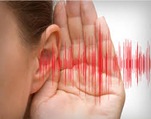 The mechanisms of hearing are complex and our understanding of them is continually evolving. Simplified, the ear translates air movements into nerve impulses sent to the brain. These impulses are then further processed based on things like location to the listener, volume and quality to determine what’s “important” and what can be ignored.
The mechanisms of hearing are complex and our understanding of them is continually evolving. Simplified, the ear translates air movements into nerve impulses sent to the brain. These impulses are then further processed based on things like location to the listener, volume and quality to determine what’s “important” and what can be ignored.
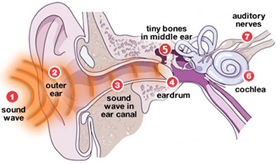 After air vibrations reach the eardrum, delicate bones transcribe them to the fluid-filled chambers of the inner ear. Similar to tapping the skin of a water balloon, the sound ripples through the perilymph to a second fluid-filled chamber containing endolymph where things get really interesting.
After air vibrations reach the eardrum, delicate bones transcribe them to the fluid-filled chambers of the inner ear. Similar to tapping the skin of a water balloon, the sound ripples through the perilymph to a second fluid-filled chamber containing endolymph where things get really interesting.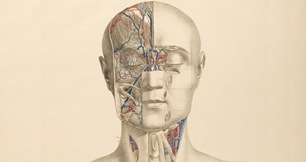 These afferent (to the brain) nerves carry impulses through the brainstem to the “auditory belt” which decides which signals are important. The “important” signals continue on to the cortices of the brain and our conscious hearing while others – don’t. This is one reason we can locate sound and “tune-out” background noise like ignoring someone else’s conversation at a party. As a part of this process, the brain also sends impulses back to the ear (efferent impulses) which change how the hair cells respond to sound by physically changing their shape and how they respond to ions.
These afferent (to the brain) nerves carry impulses through the brainstem to the “auditory belt” which decides which signals are important. The “important” signals continue on to the cortices of the brain and our conscious hearing while others – don’t. This is one reason we can locate sound and “tune-out” background noise like ignoring someone else’s conversation at a party. As a part of this process, the brain also sends impulses back to the ear (efferent impulses) which change how the hair cells respond to sound by physically changing their shape and how they respond to ions.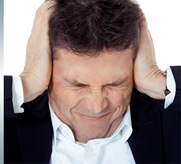 Considering this elaborate chain of events, it’s easy to see how a hiccup at any point could create noise. It’s also why tinnitus can be so difficult to treat effectively. When an obvious link in the chain is disrupted, for example with acoustic neuroma, the targeting of treatment is relatively straightforward. When it’s more idiopathic (unknown) things become challenging. Research into both the hearing mechanisms and treatments for tinnitus continue. Every day new and amazing discoveries are made although it will be some time before the mysteries of the ear, hearing and balance fully unravel.
Considering this elaborate chain of events, it’s easy to see how a hiccup at any point could create noise. It’s also why tinnitus can be so difficult to treat effectively. When an obvious link in the chain is disrupted, for example with acoustic neuroma, the targeting of treatment is relatively straightforward. When it’s more idiopathic (unknown) things become challenging. Research into both the hearing mechanisms and treatments for tinnitus continue. Every day new and amazing discoveries are made although it will be some time before the mysteries of the ear, hearing and balance fully unravel.

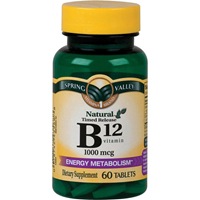 B12 and tinnitus
B12 and tinnitus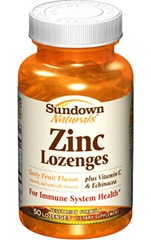
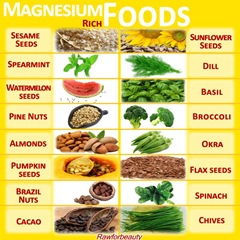 Magnesium and tinnitus
Magnesium and tinnitus
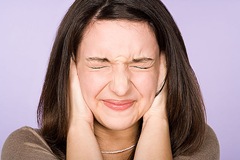 innitus is a chronic condition of constant ringing in the ears. The cause is frequently unknown, which makes treatment a struggle to separate what works from what doesn’t. In cases where the medical cause is apparent – such as acoustic trauma, an inner ear disorder such as Meniere’s disease or infection – the treatment for tinnitus is the treatment of the disease. For idiopathic (unknown) tinnitus, lifestyle changes including exercise and diet are often effective.
innitus is a chronic condition of constant ringing in the ears. The cause is frequently unknown, which makes treatment a struggle to separate what works from what doesn’t. In cases where the medical cause is apparent – such as acoustic trauma, an inner ear disorder such as Meniere’s disease or infection – the treatment for tinnitus is the treatment of the disease. For idiopathic (unknown) tinnitus, lifestyle changes including exercise and diet are often effective.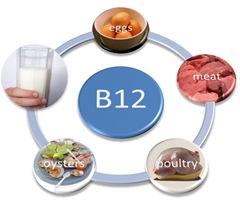
 How can my diet improve my tinnitus?
How can my diet improve my tinnitus?

 Tinnitus affects more than 10% of the American population. A constant ringing in the ears, it can vary from little more than an irritation to a debilitating condition. Tinnitus is caused from a variety of problems ranging from hearing loss to injury, and has been the subject of extensive research into both its causes and potential treatments.
Tinnitus affects more than 10% of the American population. A constant ringing in the ears, it can vary from little more than an irritation to a debilitating condition. Tinnitus is caused from a variety of problems ranging from hearing loss to injury, and has been the subject of extensive research into both its causes and potential treatments.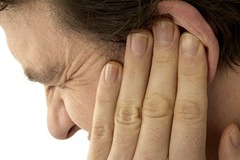
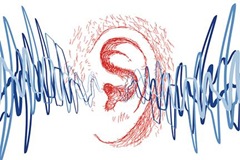 A new therapy for tinnitus?
A new therapy for tinnitus?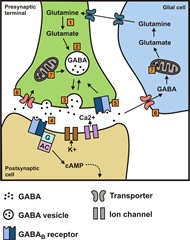

 In recent years much discussion has surrounded micro-nutrients’ and the essential fatty acids’ role in reducing degenerative disease. Arguments can be made that foods with less processing and a more organic lifecycle may be richer in these. While the effect on chronic illness of the steroids, antibacterials and artificial feeds often found in factory farming is still unclear, choosing to avoid these can be a healthy precaution. Blood flow restriction and inflammation are common suspects in tinnitus and a number of vitamins and lifestyle recommendations address this. Avoiding vasoconstrictors (which make blood vessels contract) such as caffeine is common, as are supplements such as the bioflavinoids and ginko biloba which both have a vasodilating effect.
In recent years much discussion has surrounded micro-nutrients’ and the essential fatty acids’ role in reducing degenerative disease. Arguments can be made that foods with less processing and a more organic lifecycle may be richer in these. While the effect on chronic illness of the steroids, antibacterials and artificial feeds often found in factory farming is still unclear, choosing to avoid these can be a healthy precaution. Blood flow restriction and inflammation are common suspects in tinnitus and a number of vitamins and lifestyle recommendations address this. Avoiding vasoconstrictors (which make blood vessels contract) such as caffeine is common, as are supplements such as the bioflavinoids and ginko biloba which both have a vasodilating effect.
 In addition to the herbal supplements, vitamin deficiency may also potentially lead to tinnitus – with reduced B-vitamins being particularly suspect. B12 is critical for maintaining the nerve’s protective myelin sheath as well as for the production of Epinephrine, Creatine, Methylated Nucleotides and Phosphatidylcholine for cell walls. B12 is also a cog in the creation of Melatonin, which may improve tinnitus symptoms and provide better sleep. B6 is well known for its role in energy production, while the other B-vitamins are needed to assemble proteins and nucleic acids.
In addition to the herbal supplements, vitamin deficiency may also potentially lead to tinnitus – with reduced B-vitamins being particularly suspect. B12 is critical for maintaining the nerve’s protective myelin sheath as well as for the production of Epinephrine, Creatine, Methylated Nucleotides and Phosphatidylcholine for cell walls. B12 is also a cog in the creation of Melatonin, which may improve tinnitus symptoms and provide better sleep. B6 is well known for its role in energy production, while the other B-vitamins are needed to assemble proteins and nucleic acids.



 Tinnitus is a frustrating, chronic disorder that can – at times – make a person feel like they’re going mad. It can be related to a diagnosed medical condition or be completely idiopathic; and when the cause is unknown finding solutions is an exhausting process.
Tinnitus is a frustrating, chronic disorder that can – at times – make a person feel like they’re going mad. It can be related to a diagnosed medical condition or be completely idiopathic; and when the cause is unknown finding solutions is an exhausting process.

 What can I do about low B-12?
What can I do about low B-12?
 You hear what you eat – tinnitus and diet
You hear what you eat – tinnitus and diet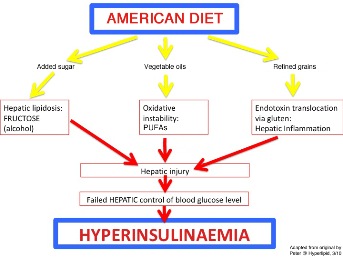
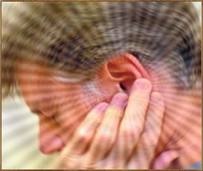 Does diet affect tinnitus
Does diet affect tinnitus
 Tinnitus is an aggravating condition of unrelenting ringing in the ears. It affects an estimated 12 million people in the U.S., with as many as 2 million suffers finding it difficult to lead a normal life as a result of the noise. Researchers have been investigating the possibility that tinnitus may be related to a disparity in the brain’s processing of hearing and tactile (touch) nerve impulses. Treatments based on external stimulation of these nerves have shown promise for a return to silence.
Tinnitus is an aggravating condition of unrelenting ringing in the ears. It affects an estimated 12 million people in the U.S., with as many as 2 million suffers finding it difficult to lead a normal life as a result of the noise. Researchers have been investigating the possibility that tinnitus may be related to a disparity in the brain’s processing of hearing and tactile (touch) nerve impulses. Treatments based on external stimulation of these nerves have shown promise for a return to silence.
 Four of the patients in the study experienced a clinically significant reduction in tinnitus by as much as 26 decibels. Three of these sufferers had a 44% reduction in the impact the illness was having on their daily lives. Dr. Sven Vanneste of the School of Behavioral and Brain Sciences at UT Dallas was optimistic;
Four of the patients in the study experienced a clinically significant reduction in tinnitus by as much as 26 decibels. Three of these sufferers had a 44% reduction in the impact the illness was having on their daily lives. Dr. Sven Vanneste of the School of Behavioral and Brain Sciences at UT Dallas was optimistic;
 The causes of tinnitus are varied and often unknown. Sound is ultimately a neurological process stimulated by the mechanical movements in the middle and inner ear. By definition tinnitus is a false signal sent to the brain, and as with any complicated biological mechanism there are multiple points of failure that can create the phantom noise.
The causes of tinnitus are varied and often unknown. Sound is ultimately a neurological process stimulated by the mechanical movements in the middle and inner ear. By definition tinnitus is a false signal sent to the brain, and as with any complicated biological mechanism there are multiple points of failure that can create the phantom noise.